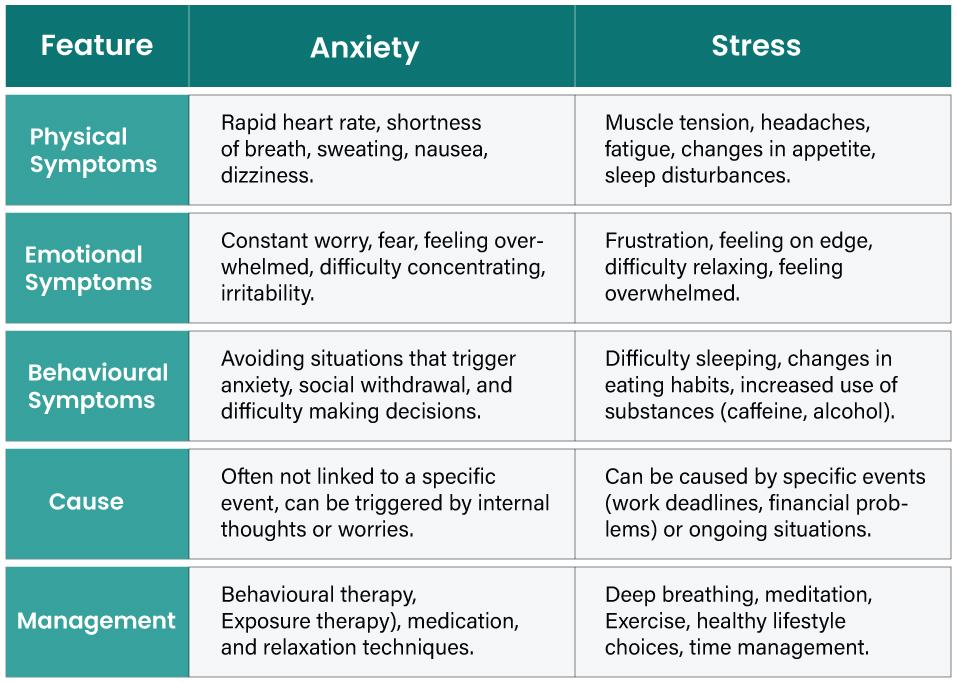Chronic stress may have a significant impact on an individual's lifestyle. It will affect well-being across several dimensions. Poor sleep often leads to daytime tiredness and cognitive deficits that make it difficult to do daily tasks and conduct jobs. Stress may interrupt healthy behaviours, as people may seek refuge in harmful eating habits or skip exercise routines owing to weariness or a lack of enthusiasm. Furthermore, social relationships may become strained. Chronic stress can cause irritation and social isolation, perhaps alienating loved ones at a time when strong support networks are most needed. This combination of negative consequences can result in a self-perpetuating loop in which stress and anxiety disturb good practices that might normally lessen its impact.

How to Overcome Stress
Stress can lead an individual to a brutal situation from which they cannot escape. However, if an individual needs to overcome stress, they can follow these simple steps and use them in their daily routine. So here is a list of some stress-eliminating exercises patients can try.
1. Take a Chill Pill: an individual must be meditating and try to act normal in a harsh situation. Patients can follow simple exercises, breathing, meditation, and whatever calms them. A few minutes a day can make a big difference.
2. Move It or Lose It: Exercise is a great stress buster. Patients can start to become interested in physical activities like running, exercising, or going to the gym to escalate their anger and frustration with the tiring activities. Read
3. Sleep on It: Aim to get 7-8 hours of proper sleep each night. Additionally, you can take a power nap to recover your body and release stress.
4. Eat Well, Feel Well: Stress eating has become a common issue with people living in stressful environments. To overcome this problem, a person must eat good food and a healthy breakfast and avoid junk food. It will help you get energy and freshness.
5. Talk it Out: It is very necessary for a person who is stressed to communicate with other people and share their feelings. They can also opt for counselling and share all the factors that are causing a stressful environment and anxiety disorder. Sometimes, just talking about stress can help.
6. Work-Life Balance Matters: Disconnect after work. Sometimes, working a lot can also lead to stress, and it is necessary to take a suitable break. It will help you reduce the daily pressure and give you the energy to pursue more confidence and a fresh mind.



 Contact Us
Contact Us







 Hospitals
Hospitals
 Doctors
Doctors
 Diagnostic
Diagnostic
 Pharmacy
Pharmacy
 Health Tips
Health Tips
 Blog
Blog










